Daylight is a survival horror video game developed by Zombie Studios and published by Atlus for Microsoft Windows and PlayStation 4. It was the first game to be powered by Unreal Engine 4. [3]
Daylight is a survival horror video game developed by Zombie Studios and published by Atlus for Microsoft Windows and PlayStation 4. It was the first game to be powered by Unreal Engine 4. [3]
The player's goal in each level is to search for notes and logs from the hospital's past, referred to as "remnants", by looking for markings using glow sticks. Once all remnants in a level have been collected, the player is able to acquire a "sigil", an item of significance to the hospital's past, such as a teddy bear and a Bible. Bringing the sigil to "the Seal of Shadows" will unlock the next part of the building, allowing the player to advance further into the hospital and, possibly, to freedom.
Discovering remnants can cause a marking on her arm, which attracts the dangerous "shadow people". The player can either make them disappear by using flares or lose them by running away. The player cannot access any weapons; the only tools available are glowsticks, flares, and a cell phone. The environment layout is randomly generated. The enemies and other antagonists are procedurally spawned. [4]
The game's interface includes the number of remnants the player has to find and the threat level in the hospital. As threat level increases, monsters are more likely to appear.
The plot is centered around a woman named Sarah who regains consciousness in an abandoned hospital with no memory of how she got there. A mysterious voice tells her to find the secrets of the hospital. With a cell phone, which is her map, she must explore the haunted hospital and survive the mysterious shadow people.
| | This section needs expansion. You can help by adding to it. (October 2014) |
| Aggregator | Score |
|---|---|
| Metacritic | PC: 51/100 [5] PS4: 48/100 [6] |
| Publication | Score |
|---|---|
| Destructoid | PC: 4/10 [7] |
| Edge | PC: 3/10 [8] |
| Eurogamer | PC: 7/10 [9] |
| GameSpot | PC: 3/10 [10] |
| GamesRadar+ | PC: |
| GameTrailers | PC: 7.4/10 [12] (PS4) 7.4/10 [12] |
| GameZone | 3/10 [13] |
| Hardcore Gamer | PC: |
| IGN | PC: 5.8/10 [15] PS4: 5.8/10 [15] |
| PC Gamer (UK) | PC: 43/100 [16] |
| Polygon | PC: 5/10 [17] |
| Push Square | PS4: 2/10 [18] |
| VentureBeat | PS4: 60/100 [19] |
Daylight received mixed reviews from critics. Aggregating review website Metacritic gave the PC version 51/100, [5] and the PlayStation 4 version 48/100. [6] GameZone's Joe Donato opined "Daylight accomplishes nothing. Its attempt to expand on the Slender formula is only enjoyable for as long as you'd ever want to play Slender anyway, and it isn't nearly as effective." [13]

Unreal Tournament is a first-person arena shooter video game developed by Epic Games and Digital Extremes. The second installment in the Unreal series, it was first published by GT Interactive in 1999 for Windows, and later released on the PlayStation 2 and Dreamcast by Infogrames in 2000 and 2001, respectively. Players compete in a series of matches of various types, with the general aim of out-killing opponents. The PC and Dreamcast versions support multiplayer online or over a local area network. Free expansion packs were released, some of which were bundled with a 2000 re-release: Unreal Tournament: Game of the Year Edition.
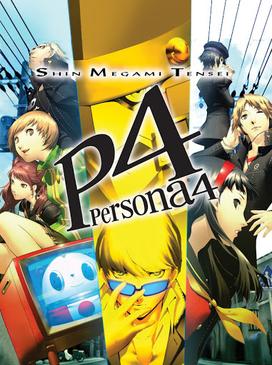
Persona 4, released outside Japan as Shin Megami Tensei: Persona 4, is a 2008 role-playing video game by Atlus. It is chronologically the fifth installment in the Persona series, itself a part of the larger Megami Tensei franchise, and was released for the PlayStation 2 in Japan in July 2008, North America in December 2008, and Europe in March 2009 as one of the final major exclusives for the system. It was re-released as a PlayStation 2 Classic for the PlayStation 3 in April 2014. Persona 4 takes place in a fictional Japanese countryside and is indirectly related to earlier Persona games. The player-named protagonist is a high-school student who moved into the countryside from the city for a year. During his year-long stay, he becomes involved in investigating mysterious murders with a group of friends while harnessing the power to summon physical manifestations of their psyches known as a Persona.

Dead Nation is a top-down shoot 'em up video game for the PlayStation 3 developed by video game developer Housemarque. It was released on November 30, 2010 in North America, and December 1 in the PAL region, on PlayStation Network. Dead Nation takes place in a world afflicted by a zombie apocalypse. The player can choose between a male or female character and battle different types of zombies. Dead Nation was part of Sony's "Welcome Back" package, created to resolve the initial PlayStation Network outage. In February 2014 a PlayStation 4 version of the game titled the Apocalypse Edition was announced along with the PlayStation Vita version. The original Road of Devastation downloadable content was included for the PS3 and Vita versions, and the PS4 version was free for PlayStation Plus subscribers in March 2014. The PS4 and Vita versions were released in Japan for release on May 29, 2014.
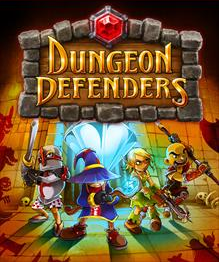
Dungeon Defenders is a hybrid multiplayer video game developed by Trendy Entertainment that combines the genres of tower defense and action role-playing game. It is based on a showcase of Unreal Engine 3 named Dungeon Defense. The game takes place in a fantasy setting where players control the young apprentices of wizards and warriors and defend against hordes of monsters. A sequel titled Dungeon Defenders II was released in 2015.

Rock of Ages is a tower defense racing video game developed by ACE Team and published by Atlus USA. It uses the Unreal Engine 3. The game was released for Xbox 360 in August 2011, for Microsoft Windows in September 2011, and for PlayStation 3 in 2012.

Unmechanical is a 2.5D puzzle video game developed by now defunct Swedish studio Talawa Games and published by Teotl Studios. It was released in 2012 for Windows. It was later available for iOS. It is available on Steam, GOG.com, GamersGate, OnLive, Rain, Desura and on the App Store. Unmechanical: Extended is an extended edition of the original game, developed by Czech developer Grip Games. It features new levels and bonuses. It was also released for PlayStation 3, PlayStation 4, and Xbox One in 2015.

Trials Fusion is a platform racing video game developed by Ubisoft RedLynx in collaboration with Ubisoft Shanghai and Ubisoft Kyiv. A follow-up to Trials Evolution, it is the fifth game in the Trials series and is the first one to be released on a PlayStation platform. The game was released on Microsoft Windows, PlayStation 4, Xbox 360 and Xbox One in April 2014. A companion game, Trials Frontier, was released on iOS and Android devices and designed to accompany the console and PC title. Ubisoft released six paid DLC packs, as well as several free content updates. Online multiplayer was added in an update on January 24, 2015.

Strider, known in Japan as Strider Hiryū, is a platform-adventure hack and slash video game developed by Double Helix Games and Capcom's Osaka studio. It was released in February 2014 for PlayStation 3, PlayStation 4, Windows, Xbox 360, and Xbox One. It is a reboot of the 1989 video game Strider.

Shadow Warrior is a first-person shooter game developed by Flying Wild Hog and published by Devolver Digital for Microsoft Windows, PlayStation 4, Xbox One, Linux and Mac OS X. It is a reboot of the 1997 game of the same name, developed by 3D Realms and published by GT Interactive, licensed out by Devolver Digital, featuring the same character Lo Wang and a modern era setting with Asian mythology elements, all of which were redesigned with modern, full 3D graphics and new gameplay features, while also being a throwback to classic first-person shooters. The game was released on 26 September 2013 through digital distribution via Steam and GOG.com with a later retail release. On 27 April 2015 the game was released for both OS X and Linux. Upon its release, the game was met with mixed reviews. A sequel, Shadow Warrior 2, was released in 2016; and another sequel, Shadow Warrior 3, was released in 2022.

Persona 4 Arena Ultimax is a fighting video game co-developed by P-Studio and Arc System Works and published by Atlus. It was released for arcades in 2013, and for PlayStation 3 and Xbox 360 in 2014 by Atlus in Japan and North America and by Sega in Europe. Versions for Nintendo Switch, PlayStation 4, and Windows were released by Sega in March 2022. A direct sequel to Persona 4 Arena, the game is a spin-off from the Persona series, itself part of the larger Megami Tensei franchise. Gameplay follows standard fighting game conventions, with matches between two characters with individual movesets, and special expendable abilities. The storyline is told through visual novel segments.

Killing Floor 2 is a first-person shooter video game developed and published by Tripwire Interactive, with later support from Saber Interactive. It is a sequel to 2009's Killing Floor. An early access version of the game was released for Microsoft Windows in April 2015, and the game was released in November 2016 for Windows and PlayStation 4 and August 2017 for Xbox One. The game utilizes Epic Games' Unreal Engine 3. A sequel, Killing Floor 3, is in development.
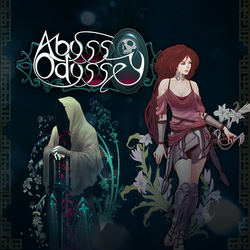
Abyss Odyssey is a platform action-adventure game developed by ACE Team and published by Atlus. It was released in July 2014 for the Xbox 360, PlayStation 3, and Microsoft Windows, and for the PlayStation 4 in July 2015.
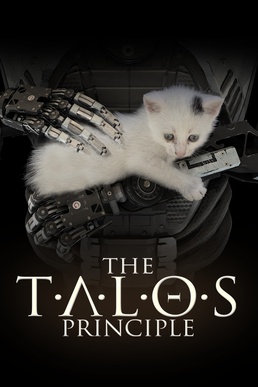
The Talos Principle is a 2014 puzzle video game developed by Croteam and published by Devolver Digital. It was simultaneously released on Linux, OS X and Windows in December 2014. It was released for Android in May 2015, for PlayStation 4 in October 2015, for iOS in October 2017, for Xbox One in August 2018, and Nintendo Switch in December 2019. Virtual reality-enabled versions for the Oculus Rift and HTC Vive were released on 18 October 2017. A DLC entitled Road to Gehenna was released on 23 July 2015.
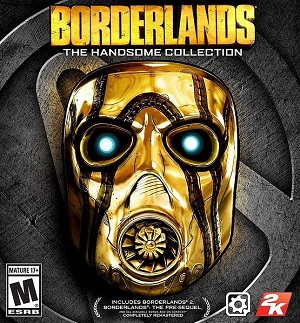
Borderlands: The Handsome Collection is a compilation of first-person shooter video games developed by Gearbox Software and published by 2K. The Handsome Collection consists of both Borderlands 2 (2012) and Borderlands: The Pre-Sequel (2014) for PlayStation 4 and Xbox One, along with all of their accompanying downloadable content, enhanced local multiplayer, and the ability to transfer save data from their respective PlayStation 3 /Vita/PSVR and Xbox 360 versions. A port to the Nintendo Switch entitled Borderlands Legendary Collection was released in North America on May 29, 2020 along with the PlayStation 4 and Xbox One versions, which additionally includes the first Borderlands. For The Handsome Collection, Borderlands 2 was ported by Iron Galaxy Studios and Borderlands: The Pre-Sequel by Armature Studio. The Legendary Collection port was handled by Turn Me Up Games and Behaviour Interactive.

Wolfenstein: The Old Blood is an action-adventure first-person shooter video game developed by MachineGames and published by Bethesda Softworks. It was released on 5 May 2015 for PlayStation 4, Windows, and Xbox One. The game is a stand-alone title in the Wolfenstein series and a prequel expansion to 2014's Wolfenstein: The New Order, set in an alternate-history 1946. The single-player story follows war veteran William "B.J." Blazkowicz and his efforts to discover the locations of a Nazi compound. Development began in 2014, soon after the release of The New Order.

Always Sometimes Monsters is a role-playing video game created by Canadian indie developers Justin Amirkhani and Jake Reardon, developed by Vagabond Dog and published by Devolver Digital. The game was released on 21 May 2014 for Microsoft Windows. A later update using the MonoGame framework brought the game to OS X and Linux on 8 January 2015 and to iOS and Android on 28 May 2015.

Rock of Ages 2: Bigger & Boulder is a tower defense racing video game developed by ACE Team and published by Atlus USA. The game is the sequel to the 2011 Rock of Ages, and was released in August 2017 for PlayStation 4, Windows, and Xbox One. A Nintendo Switch port of the game released in May 2019.

The Occupation is a single-player adventure video game developed by White Paper Games and released on PlayStation 4, Xbox One, and Microsoft Windows on 5 March 2019. The game takes place in a single government building, in real-time over four hours. The game advances with or without input from the player, but almost all in-game actions can affect the game's story.
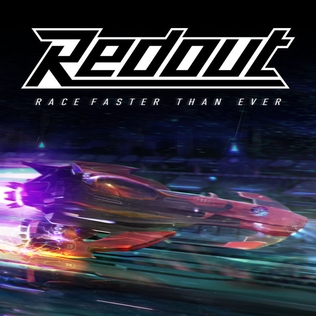
Redout is a science fiction racing video game developed and published by Italian studio 34BigThings, and co-published by Nicalis and 505 Games. It is inspired by racing games such as F-Zero, Wipeout, Rollcage, and POD as stated on the game page on Steam.

Plants vs. Zombies: Battle for Neighborville is a third-person shooter developed by PopCap Games and published by Electronic Arts for PlayStation 4, Windows, Xbox One and Nintendo Switch. It is a continuation of the Plants vs. Zombies: Garden Warfare spin-off series of Plants vs. Zombies. The game was released as an early access title in September 2019 before its full release in October the same year. It received generally positive reviews upon release.